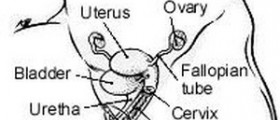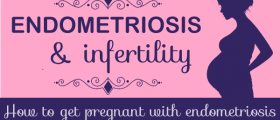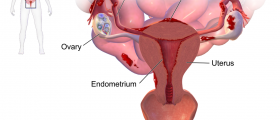
Women can experience painful intercourse, and even pelvic examination by a doctor can be painful. The pain intensity can change from month to month, and vary greatly among women. Some women experience progressive worsening of symptoms, while other women resolve pain without any treatment. During pregnancy, ovulation stops, and many women with endometriosis feel much better while they are pregnant. Hormonal changes include high levels of progesterone, the presence of HCG (human chorionic gonadatropin) and prolactin, among others. Because of hormonal changes that pregnancy brings, endometriosis implants generally become less active, and may get smaller and less tender. This however does not mean disease went away during pregnancy.
After pregnancy and nursing is over, and sometimes even before, the symptoms of endometriosis return, sometimes even stronger than before. This brings us to conclusion that pregnancy is not a cure for endometriosis, also drugs do not make endometriosis disappear, but they can offer temporary relief from symptoms. There are oral contraceptives available that have a regulated low-dose combination of estrogen and progesterone to prevent ovulation. This is very important since ovulation is difficult for many women with endometriosis. Progesterone is also applied as it can prevent ovulation and reduce circulating estrogen levels. There are side effects to this method, such as irregular bleeding, bloating, weight gain, and more. There are also treatments in form of drugs available that virtually stop all ovarian activity, that is hormone production and ovulation these drugs are called GNRH analogs (Synarel, Lupron, Zoladex and Danocrine).
Surgical option is also a solution to endometriosis. There are questions arising whether and how does endometriosis affects a woman s chances of healthy conceiving. Most studies prove there is a connection: they show that a woman with endometriosis is less likely to conceive than a woman without endometriosis. Statistics show that out of 100 women, 80 of them will not have problems getting pregnant, but 20 of them will do. Researches also prove that women with endometriosis conceive at a lower rate than women without. It is also important to bring out that miscarriages are also common among women with endometriosis.
- www.womenshealth.gov/a-z-topics/endometriosis
- www.nhs.uk/conditions/endometriosis/
- Photo courtesy of BruceBlaus by Wikimedia Commons: commons.wikimedia.org/wiki/File:Blausen_0349_Endometriosis.png

















Your thoughts on this
Loading...